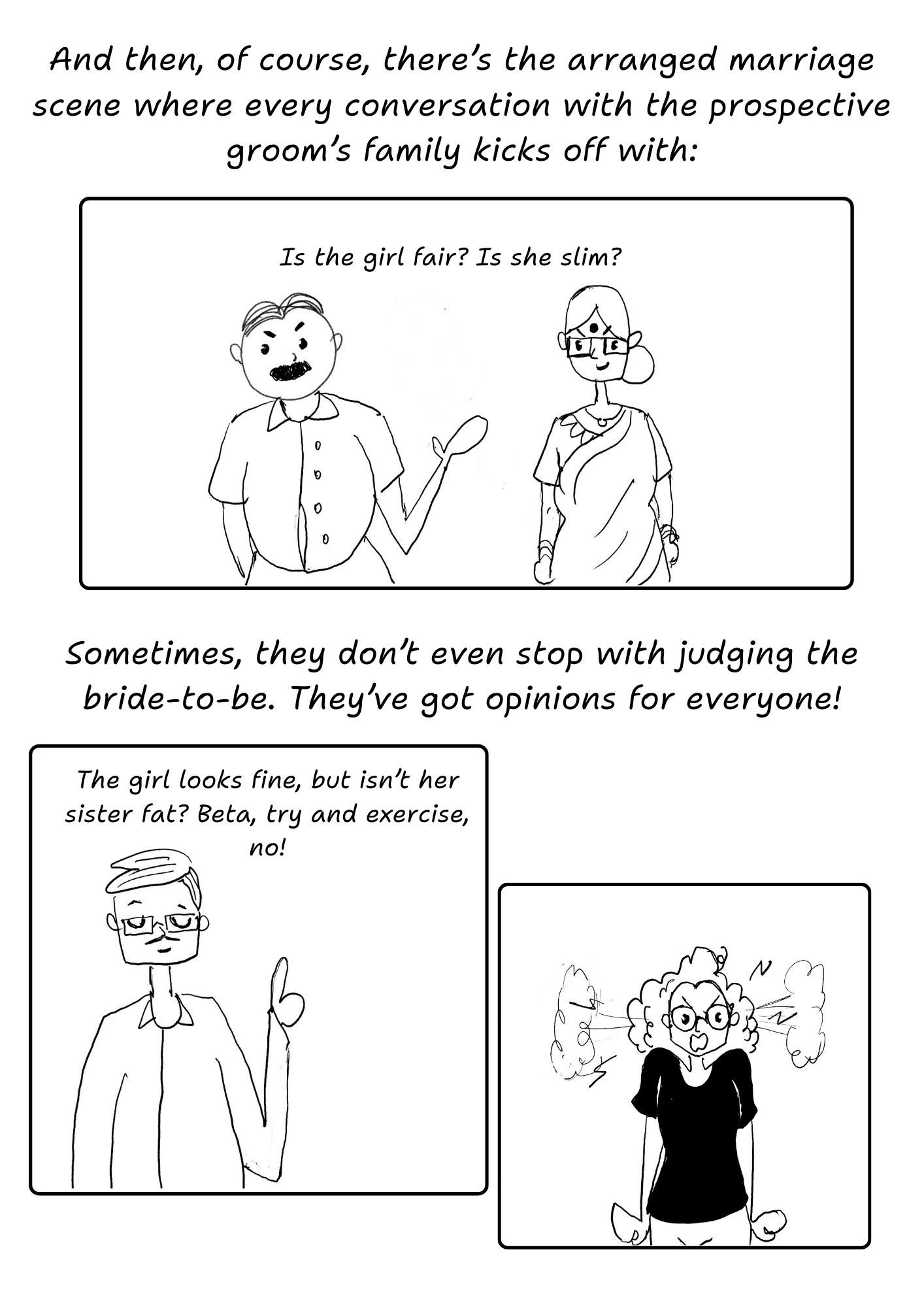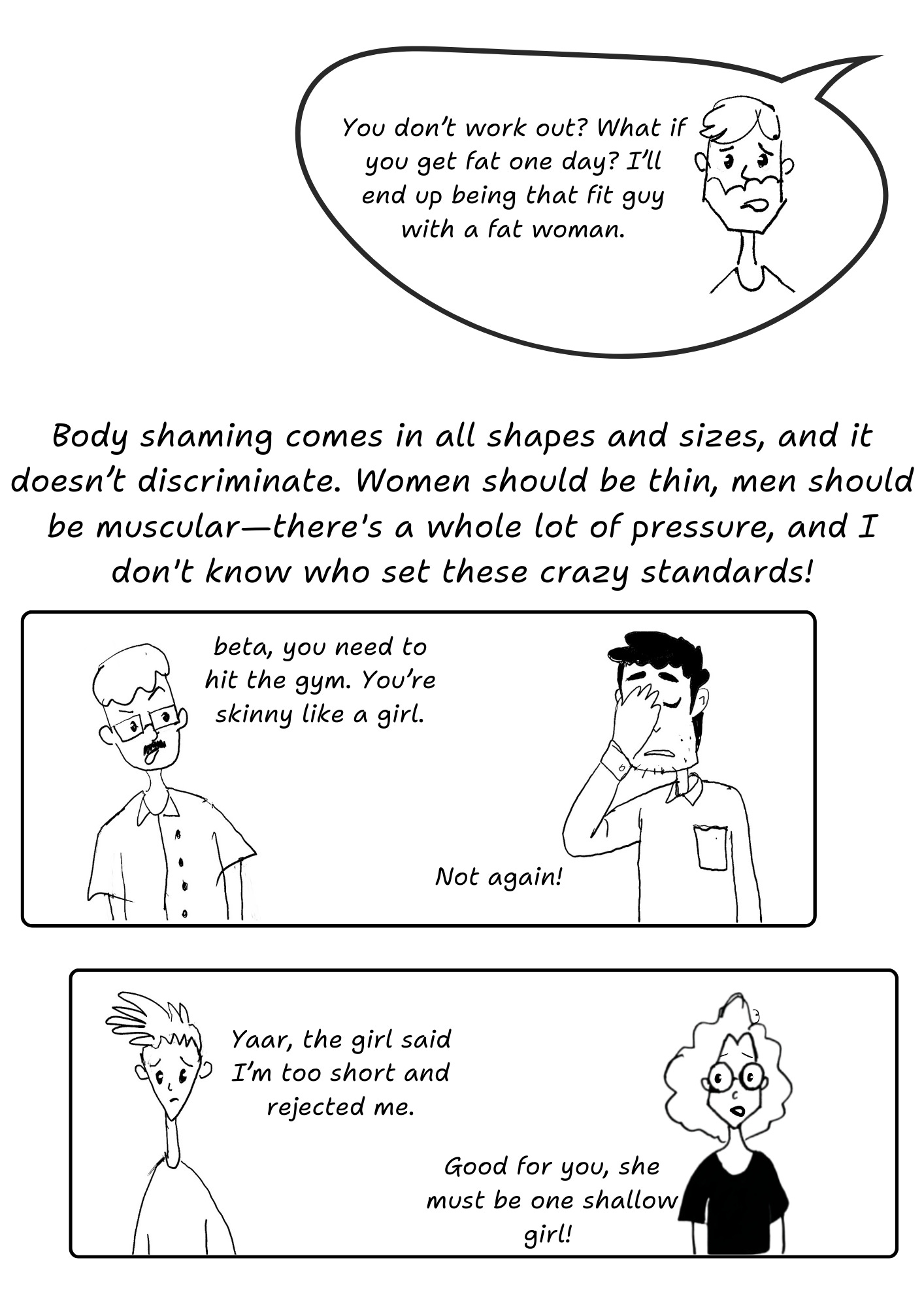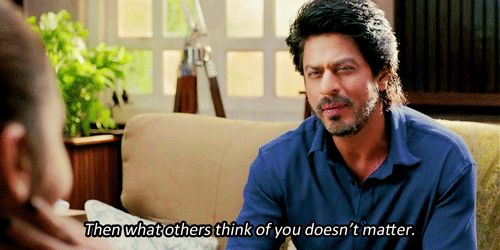Last month, I attended my nephew’s rice ceremony and decided to rock a saree—a Kerala white saree with golden borders. And yes, I looked fabulous if I do say so myself!
Her comment didn’t faze me—I knew I was still fabulous, oily skin and all!
But let’s be real, this wasn’t the first time some well-meaning stranger felt the need to offer unsolicited advice about my body. This particular talent is what we call ‘body-shaming.’
And let’s not forget—body-shaming often paves the way for low self-esteem and body image dissatisfaction. Body image dissatisfaction is when you feel negatively about how you see and feel about your own body. In simpler terms, it’s like being a beautiful flower but seeing yourself as a weed.
The nicknames we use—‘motu,’ ‘patlu,’ ‘lambu,’ and so on—might seem like harmless teasing, but they can have long-lasting effects. What may appear trivial can, over time, lead to deep self-doubt, anxiety, and even depression. It's crucial to recognize how these seemingly minor comments can significantly impact our mental health.
But does body-shaming only come from strangers? Surprisingly, it often begins right at home. For many of us, it’s a generational trauma passed down like an old family recipe—only this one leaves a sour taste.
Years passed, but I pretty much-avoided mirrors for most of my life because all I saw were ‘imperfections.’ Even now, I question every compliment. “Really? Do they mean it?”
And I know I’m not alone. My friend once shared how her mother constantly limited her food intake because ‘girls are supposed to be slim.’ Even after growing up and becoming lean, she couldn’t shake the feeling that maybe, just maybe, she was still fat. So, while some advice might come from a place of love, it doesn’t change how we end up seeing ourselves.
Fair & Lovely was recently rebranded as Glow & Lovely, claiming to promote an 'inclusive vision of beauty.' But does swapping 'fair' for 'glow' really change anything?
The media's idea of beauty might feel like something far away, but it actually affects how we see ourselves. Constantly being told what’s considered attractive can make us feel inadequate. I’ve seen how these pressures have influenced my own struggles with body image.
In her beautiful article, photographer Nena Sterner talks about how women often worry about the tiniest details of their bodies, from the shape of their nail beds to the dimples on their backs. It’s a great read that delves into how beauty standards have evolved over time. I was particularly struck by the sculpture of Aphrodite, the Greek goddess of beauty, who certainly didn’t fit today’s skinny ideal!
In a study of 511 men, 34.44% experienced body image dissatisfaction, with underweight men being more dissatisfied than those who were obese.
Meanwhile, in another study, more than one-fourth of young women (28%) reported moderate-to-severe body dissatisfaction. This data also revealed that 81.9% of their targeted audience had heard negative comments about their bodies. This highlights how derogatory comments around body image persist in the 21st century, even as our world becomes more globalized and diverse.
But despite the damage, I wasn’t about to let it define me forever. I realized how much I love painting people, regardless of how they look, yet my inner voice kept nagging that I wasn’t pretty enough. It took years of unlearning to finally understand that we’re all imperfect—and that’s okay!
Beauty standards will continue to change, but one thing should remain constant: I’m perfectly normal, and that’s enough.
And if anyone dares to comment on my body or tries to shake my confidence, I’m ready with my favorite pose:
As Joseph Nguyen writes in his book ‘Don’t Believe Everything You Think’
"Thoughts are not facts. Your thoughts are not the problem. Thoughts do not affect us unless we believe them to be true. We cannot always control our thoughts, but we can always control whether we believe them or not. Our emotions don’t come from external events but from what we think about them. So if you want to change how you feel, it comes down to changing the way you think—or better yet, letting go of what you think.”
Next time your friend says they don’t feel pretty, think about how you’d respond—and then try that with your inner voice as well.
Remember, what YOU think matters.
P.S.: How do you deal with comments on your body now compared to before?















